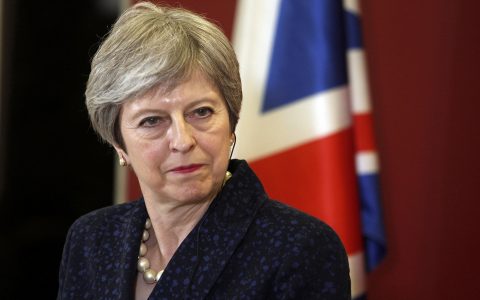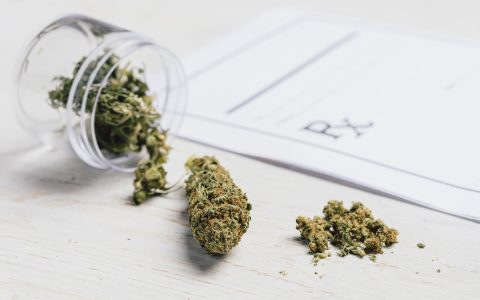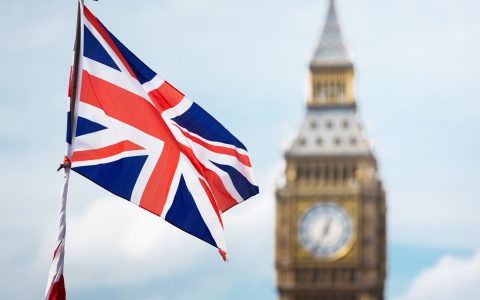A year ago, drug policy reform in the United Kingdom was a fringe issue at best. For Britons, access to legal marijuana existed in a future so remote it may as well have been an alternate timeline.
In Parliament, efforts to reform the country’s drug laws, some of the strictest in Europe, were relegated to opposition backbenchers, whose own party colleagues blocked their mostly symbolic bills from receiving even a public hearing. Appeals to compassion and fiscal responsibility went unheeded. Cannabis activists could do little more than light protest joints outside Westminster Palace in an effort to show the behavior was neither criminal nor menacing.
Though GW Pharmaceuticals—the blue-chip drugmaker behind cannabis-derived epilepsy medicine Epidiolex, which was recently approved by the FDA for prescription in the United States—sites both its headquarters and main cannabis production facility in the UK, there was scant reason to believe British patients would be able to access the medicine anytime soon.
That all changed after the Home Office in June chose to seize cannabis oil flown into Heathrow Airport from Canada—medicine for Billy Caldwell, a boy from Northern Ireland with intractable epilepsy who had sought cannabis treatments in North America. The product, a low-THC cannabis oil with a 50-to-1 CBD-to-THC ratio, was unlawful in the UK.
Steve Moore, VolteFace
A media frenzy and public outcry ensued. Within days, the same intransigent government officials were shamed into promising a thorough review of the law. The same patients formerly left out in the cold at Parliament were invited inside for meetings with policymakers.
On Oct. 12, four months after the airport saga, Home Secretary Sajid Javid announced that “cannabis-based products for medicinal use” would be rescheduled under UK drug laws and available for prescription by doctors on Nov. 1.
“This is a major victory for our campaign and will mean a lot of people will have a much better quality of life,” said Clark French, a multiple sclerosis patient and one of the UK’s most prominent medical cannabis activists.
UK patients may still have to wait awhile for access. It could take a year or more for the National Health Service to devise procedures to prescribe and distribute cannabis-based medicines—most likely imported from Canada.
Nonetheless, on the eve of Canada’s recreational market set to open Oct. 17, there are many indications that the United Kingdom has suddenly become the fastest-moving and biggest new medical market for cannabis companies.
“It does look that this could be the most open, accessible medical cannabis policy in Europe, if they get it right and we keep guiding them in the right directions,” said Jonathan Liebling, the political director of the United Patients Alliance (UPA), the country’s leading medical marijuana advocacy group.
UPA organized last year’s protest outside Parliament and—following Home Office’s confiscation of Billy Caldwell’s medicine—has spent most of the summer and fall inside the halls of government, meeting with MPs and helping to organize policy.
The Caldwell saga was heralded as the UK’s “Charlotte’s Web moment,” an analogue to the speed with which policymakers in many US states got behind medical cannabis legalization after the story of Charlotte Figi, a young girl with epilepsy whose seizures were successfully treated with cannabis oil, was featured on a CNN special.
Such a turnaround was not guaranteed. A petition to change UK law on behalf of another young epileptic, six-year-old Alfie Dingley, seemed likely to be handled either behind closed doors or via a special exception that would not change the laws themselves.
“We got a bit lucky,” admitted Steve Moore, a veteran political strategist and director of VolteFace, a London-based drug-policy reform think tank that helped organize the Caldwell trip and promote subsequent media coverage. “If Billy’s medicine wouldn’t have been confiscated, none of that would have happened.”
Exactly what products will become available and when is still uncertain.
“That was the Elvis-on-the-Ed-Sullivan-show moment,” he said. “It turned it into a story of confiscated medicine rather than cannabis. That changed everything.”
Before the “stunt,” no more than “15 members of Parliament supported” cannabis reform,” Moore added in a telephone interview on Saturday. “By the time Billy’s medicine was confiscated, there wasn’t one out of the entire 650 who objected to it.”
The very public plight of Billy Caldwell and his mother, Charlotte—an omnipresent figure in the UK media following the airport drama—may have been the final straw, but several key moments prior laid the foundation for reform.
They include the elevation of Javid to Home Secretary in April, the chaos and uncertainty of Brexit, and even the in-power Conservative Party’s austerity policy.
Javid, a former Deutsche Bank executive whose father was an immigrant, is said to have ambition to succeed Theresa May as prime minister. In medicinal cannabis, he has found an issue transcending party division that—so far—has allowed him to portrays himself as a decisive and pragmatic thinker.
“He want[ed] this off his plate with #Brexshit [sic] to deal with and has got it done,” Liebling said. “Quite impressed with him, actually.”
The influence of British police—among the most vocal authority figures advocating for cannabis reform—has also been profound. Following the announcement by Mike Barton, chief constable in Durham, a mid-sized county in England’s northeast, that his officers would no longer seek prosecutions in possession and low-level cultivation cases, the vice-president of the Police Federation, which represents 120,000 cops in the country, called for a re-examination of the country’s drug laws.
Police attitudes have shifted as their ranks have thinned. Under May, responding to budget pressures as Home Secretary, the number of sworn officers in the UK shrank by 14%. With the threat of serious crime like terrorism very real in the UK, police may simply be losing their zeal to pursue drug crimes, observers say.
Exactly what products will become available and when is still uncertain. The term “cannabis-based products for medicinal use in humans” still must be defined by the British government (though UPA is confident that, unlike some states in the US, it will include cannabis flower, though government rules forbid smoking). Guidance from both the Medicines and Healthcare Products Regulatory Agency, which regulates medicines, and the NHS are forthcoming. And for now, the list of companies that might meet government standards to import cannabis medicines is small—as will be the initial list of physicians able and willing to prescribe the drug.
In short, much has yet to happen before the UK has a workable medical-cannabis system. But unlike in the US, where patients have been forced to go to the courts, patients in the UK have a literal seat at the table.
Looking for Medical Cannabis in the US? Start Here
VolteFace’s Moore believes recreational legalization is achievable within a five-year timeline. In the meantime, he told Leafly News, he’s been fielding a flood of calls from American and Canadian cannabis companies inquiring how they can get a meeting with the government.
“And the answer is, ‘You’re not invited’,” he said. “It’s the patients. There is a desire to make sure that patients get in first before the industry.’
“If we get it right, this could be a template for the rest of Europe,” he added. “The rest of Europe has really struggled. Here, I think there’s a real possibility that Britain, even leaving the EU, could set the standard for how to do this thing—and do it well.”








